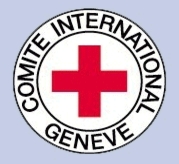In April 2006, the German government appeared finally to have consented to grant scholars full access to the documentary depositories of the International Tracing Service (ITS), a vast archive of files on the crimes of Nazism, including, of course, the Holocaust. ITS is managed by an international body of 11 custodian nations. Germany's consent should have been sufficient to encourage the others, and the International Red Cross, to follow suit. Unfortunately, a year later, there is still no access. Berlin's glacial sluggishness on the issue encouraged Rome to stonewall the issue ever more blatantly. Pundits like Anne Applebaum suspect fear of law suits for war-time compensations from Italy and Germany, based upon new revelations about the Holocaust and the "Slavic subhuman" slave laborers in the Third Reich. The CIA is also reluctant to share the knowledge of its links to the anti-Communist underground behind the Iron Curtain in the 1940s and 1950s. Paradoxically, one of America's leading experts on Communist espionage, Herb Romerstein, has been able to secure a detailed report on the Communist secret police infiltration of a joint CIA-Polish émigré operation. Codenamed "Cezary" (a.k.a. "Berg"), its documentation can be obtained from a formerly closed archive in Poland. A copy is also now available at the Hoover Institute, Stanford, California. One can guess that the reluctance of the CIA to release its own files is grounded in the agency's reticence about revealing the details of its colossal failure, which cost hundreds of America's Polish friends their freedom and, in dozens of cases, even lives. Similarly, the British are less than forthcoming about their wartime secrets. There is still no access to the file on Prime Minister Wladyslaw Sikorski's mysterious death on July 4, 1943. Indeed, it took Great Britain over 50 years after World War II to establish a historical commission to publish documents regarding the extent of the Polish participation in the espionage against Nazi Germany. Earlier, the British had denied having any knowledge of this. Then pertinent documents "miraculously" materialized in the English government archives. Thank God that the British MI5 and MI6 occasionally share secret documents with their Yankee counterparts. One can obtain thus in the United States the reports which remain still classified in the British archives -- for example, decrypted cable traffic between Soviet NKVD agents and their center in Moscow.
<<ad>>
Battles that scholars and researchers fight for archival access usually go unreported in the media. There are naturally legitimate concerns of national security to deny access. But there is also plenty of bureaucratic red tape. The CIA refuses to release the reports of its clandestine operations involving Communist secret police defectors, for example Colonel Józef Swiatlo. Ironically, his file has recently been released from Poland's spy service archive.
The 20th Century Archives: No Access, No Freedom

